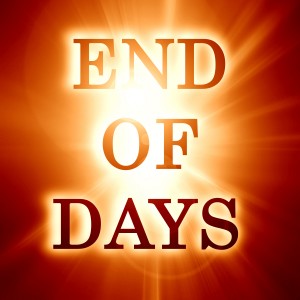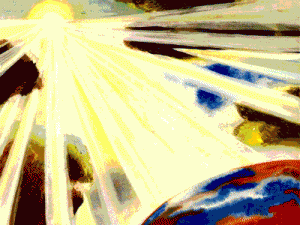There is a river of life that flows from the throne of YHVH Elohim in heaven that benefits humans if they will only get into that river. This video disusses how to experience the victorious and abundant life even in the midst of life’s trials.
Category Archives: Scripture
Do we have to keep all 613 Torah commands?
Got this email question today:
Nat[e], are you saying that christians are required to keep all 613 Torah commandments? I understood that Yeshua was the only one who followed these perfectly and met the requirement.
My answer:
Yes. This is affirmed again and again in the NT. Start by reading John 14:15 and 1 John 2:3–6. The NT defines sin as the violation of the law (1 John 3:4). Paul over and over affirmed the need to keep the Torah (Rom 3:31; Act 21:24; 25:8; 1 Cor 7:18). The end time saints are Torah-obedient (Rev 12:17 and 14:12). Those who make it to the New Jerusalem, which is heaven on earth, are Torah-law keepers (Rev 22:14). I could give hundreds more examples out of the NT alone, but hopefully, the point is made.
Why is it that Christians overlook these clear Scripture verses and come up with a theology that is totally opposite? It’s because of what is said in Rom 8:7. The carnal mind hates Elohim’s laws and being told what to do. Bottom line: It’s because of human pride and rebellion agains the Almighty.
Did Yeshua keep all 613 perfectly? No! The ones he could keep, he did so without ever sinning. He never broke one commandment or sinned even once, but he didn’t keep every single one. How is this? Some Torah commands apply to farmers, to priests. to Levites, to aliens, to slaves, to taking care of animals, to the high priest, to those who had certain types diseases or physical disabilities and to women. Yeshua, for example, didn’t keep the laws that pertained to a person with the skin diseases that the Bible colloquially calls leprosy. He didn’t keep the laws pertaining to farming or animal husbandry or to women since he wasn’t a farmer or a woman. Get the point? He did, however, keep perfectly all the laws that pertained to him. Likewise, we should keep all the laws that pertain to us. That’s all that YHVH requires of us. Certain laws, for example pertain to everyone equally across the board like the Sabbath laws, the dietary laws, keeping the biblical feasts, honoring parents, not stealing, not murdering, not coveting, not lying, not taken YHVH’s name in vain or worshipping idols.
By the way, there are more affirmative commands in the NT than in the Torah. According to one biblical researcher there are 1050! Therefore, it would seem that the NT requirements are more stringent than the those found in the Torah. Put that in your pipe and smoke it all you anti-Torah Christian theologians!
Revelation and the Olivet Prophecy (Matt 24 and 25) Compared
Not unlike treasure hunters examining a map for clues leading to a buried treasure, or an archeologist carefully scrutinizing ancient artifacts for information about lost civilizations, or an engineer diligently studying blueprints in order to construct a mechanical device or a building, we have briefly examined some of YHVH’s spiritual blueprints found in the Scriptures to give us clues about the nature and order of end-time events. Understanding the seven biblical feasts, the seven stations in the tabernacle of Moses and the various steps of the biblical wedding will help us to decode the mysteries surrounding the events pertaining to the second coming of our Master, Yeshua the Messiah.
Introducing the Olivet Prophecy
Now let us carefully investigate another set of spiritual blueprints: Yeshua’s prophecy in Matthew 24 and 25, commonly called the Olivet Prophecy.
Having a working knowledge of all these “blueprints” will help us to discover who we are as a people in the eyes of YHVH, where we have come from, where we are presently, and where we are going—that is, what the future holds for us, and what our spiritual destiny or divine inheritance is. Only then will we understand the end-time prophetic events leading up to the second coming of Yeshua, and we will learn what our role will be to play in them.
As we begin to examine Matthew 24 and 25, it is important first to note the chronological positioning of this prophecy in the context of the passages before and after this pivotal chapter. The chapters that precede Matthew 24 prophetically speak of precursory events leading up to the second coming of Yeshua, while those that follow Matthew 24 prophetically delineate events that occur after his return.
Matthew 24 sits like a diamond in the midst of a brilliant gold setting. It speaks of Continue reading
New Video: Yeshua to Destroy NWO Banking & Religious System
When Yeshua overturnend the money changers’ tables in the Jerusalem temple and cursed the fruitless fig tree after his triumphal entry, he was taking a political stand. He was also predicting his destruction of the evil New World Order Babylon the Great antichrist system at his second coming as this video explains.
New Video: Abraham on Dealing With Struggles in Marriage & Ministries
Genesis Teaches Salvation by Grace Through Faith Resulting in Good Works
Genesis 26:5, Because. Based on Paul’s teaching in Romans 4, we see that the Abrahamic Covenant is the model for salvation, which is salvation by grace through faith leading to or resulting in good works or righteousness (Eph 2:8–10).
From this verse, it might appear the Abrahamic Covenant wasn’t a faith-based covenant at all, but a works based on. In other words, Abraham had to do something to attain to be counted righteous or to come into good standing with Elohim — a concept which is commonly referred to as “receiving salvation.”
The fact is that in the Abrahamic Covenant, Abraham only had to have faith and believe in YHVH to be justified or to be considered righteous by Elohim (Gen 15:6). It was on this basis that YHVH granted him “salvation.” But this initial faith on Abraham’s part and the righteousness Elohim attributed to him was but the first step in Abraham’s faith walk. He had to walk out his faith and continue trusting YHVH.
The apostolic writers present the idea that one’s faith is a walk, not a one time event. It’s more than faith. It’s faithfulness to YHVH’s instructions. James clearly states in his epistle Continue reading
Being Cast Into Outer Darkness Vs. the Fiery Furnace
Matthew 22:13, Outer [or exterior] darkness. This is likely not a reference to destruction in the lake of fire, which is the fate of the wicked, but rather the place where those who will be least in the kingdom (Matt 5:19) will reside. They will not be living in close proximity to Yeshua as his bride in the New Jerusalem, which is a place where there is no darkness or night, for Yeshua who is the Sun of Righteousness (Mal 4:2) and whose face shines like the suns (Rev 1:16) will be the light of the New Jerusalem (Rev 21:23; 22:5).
Rather, the place of reward for those who weren’t properly attired in robes of righteousness (Matt 22:11) will be to live further away from the New Jerusalem somewhere in the New Earth. Light is a biblical metaphor for a knowledge of the truth or being able to see spiritually, while darkness is a metaphor for ignorance or spiritual blindness.
It is possible that these who will be least in the kingdom, though possessing eternal life, will be living in a state of not possessing as much divine revelation or spiritual light because their reward. This is because they failed to properly prepare their robes of righteousness to be the bride of Yeshua as the lesson of the previous parable teaches us. The reward of these people who will be least in the kingdom will be to abide in a place on the new earth that is further away from the New Jerusalem and that has less spiritual light shining on it.
Outer darkness being a lower position in the kingdom of Elohim as opposed to being cast into the lake of fire seems to the idea in the other scripture passages where Yeshua uses this phrase ( Matt 8:12; 25:30). In the verbal imagery of Yeshua, being cast into outer darkness seems to be in direct contrast to being cast into a fiery furnace, which is a reference to the fate of the wicked. This fate is final and is eternal damnation in the lake of fire (Matt 13:42, 50 cp. 3:12; 25:41; Mark 9:43–49; Rev 19:20; 20:10, 14, 15; 21:8).




